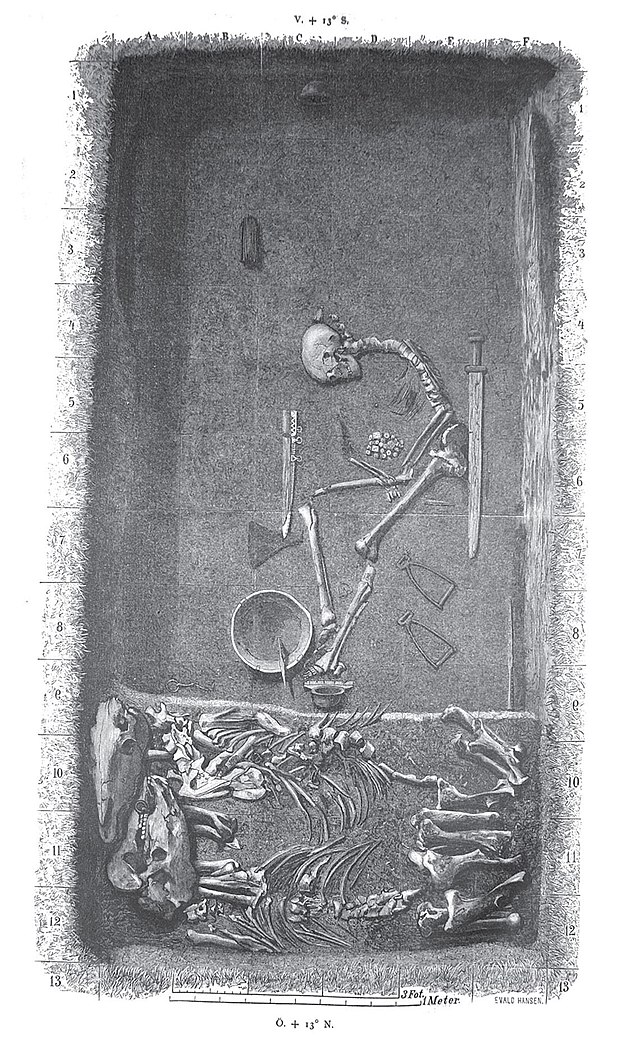The warrior of Birka
Example of female warriors in Viking society

The archaeological excavation of Birka - Wikicommons
In Viking society—or in Nordic and barbarian societies more generally—the role of women enjoyed greater freedom compared to Christian societies in central Europe. It was not uncommon to encounter female warriors (known as Shieldmaidens, or skjaldmær in Old Norse) on the battlefield, whose skills could rival those of men. Examples include the semi-legendary stories of the warrior Lagertha and the "Birka Warrior."
The latter, known as the "Birka Warrior," is named after the Swedish town of Birka, located on the island of Björkö. Birka was one of the most significant Viking settlements in Sweden during the 8th century. Its importance stemmed from its port, which made Birka a key hub for trade with both Europe and the East. One famous artifact from this period is the "Birka Ring," of Islamic origin—the only one of its kind found in that region and era.
With the decline of the Viking Golden Age (1066), Birka was abandoned as early as the 10th century, disappearing from maps until the 19th century. It was then that an entomologist named Hjalmar Stolpe arrived on Björkö to study the land and animal fossils. During archaeological excavations, Stolpe uncovered around 3,000 graves and numerous artifacts, revealing the historical significance of Birka.
One burial site stood out: it belonged to a warrior, presumably of high rank, as indicated by the presence of two horses (a stallion and a mare), as well as weapons, including a sword, spear, axe, arrows, a shield, a knife, and even a board game (possibly Hnefatafl). However, in the 1970s, an analysis of the skeleton revealed the remains—lacking a Y chromosome—were those of a woman. This discovery was initially dismissed because no remains of a female Viking warrior had been found before, as they were considered more mythical than historical figures.
The Birka grave, however, proves two important points: first, that Viking women, although a minority, were indeed skilled warriors; and second, that they enjoyed the respect of their male contemporaries and compatriots, occupying prominent roles of both social and military power.
Jennifer Guerra, Un'altra donna, DEAGOSTINI BOOKS, 2023
2025-09-25
Salvatore Ciccarello
